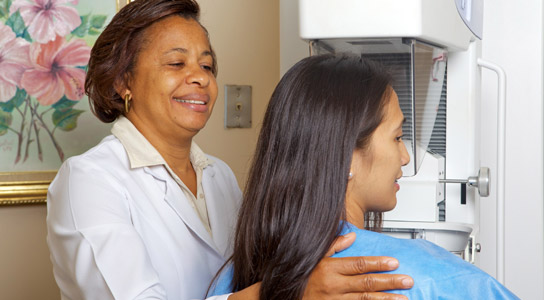New Study Questions the Benefits of Mammograms
November 22, 2012

Photo by Doctor’s Hospital
Mammography is routinely used to screen healthy women for breast cancer, and its use has led to the widespread detection and treatment of tumors that would have never caused any symptoms, according to a new study published in the New England Journal of Medicine.
The study examined the effects of mammography screens on breast-cancer incidence between 1976 and 2008 in women in the USA over 40 years of age. The researchers concluded that over one million women that were diagnosed with breast cancer would have never developed any symptoms. In 2008, it’s estimated that over 70,000 women had such breast cancer tumors diagnosed, which accounts for 31% of all breast cancers diagnosed in women 40 and older.
The study raises questions about the value of mammography screening. Overdiagnosis is a larger problem than previously recognized. The diagnosed women underwent treatments that involved surgery, radiation, hormones and chemotherapy for abnormalities that wouldn’t have caused any illness.
This study doesn’t address the situation of women who have an inherited genetic predisposition towards breast cancer. These women need to be screened actively with mammography.
With the advent of a widespread screening program, diagnoses of early-stage breast cancer have more than doubled in the last three decades, with an increase of 122 cases for every 100,000 women. The authors of the study argue that if the screening was working as intended and stopping those cancers from progressing to a more harmful disease, then one would expect to see a roughly equivalent decrease in late diagnoses.
The number of late-diagnosed cancers decreased only by 8 cases per 100,000 women. This implies that many of the early cases being detected through screening would not have caused symptomatic disease.
The study does have its critics and the even the researchers aren’t against screening, stating that “It does save lives. But a need to be more concerned about the harms [of screening] becomes more apparent from the results of our study.”
No comments:
Post a Comment